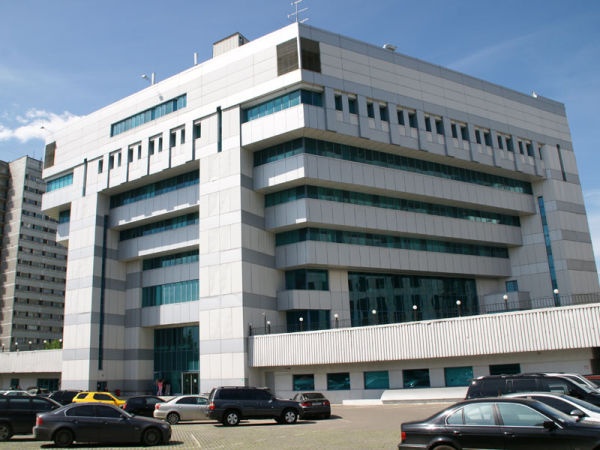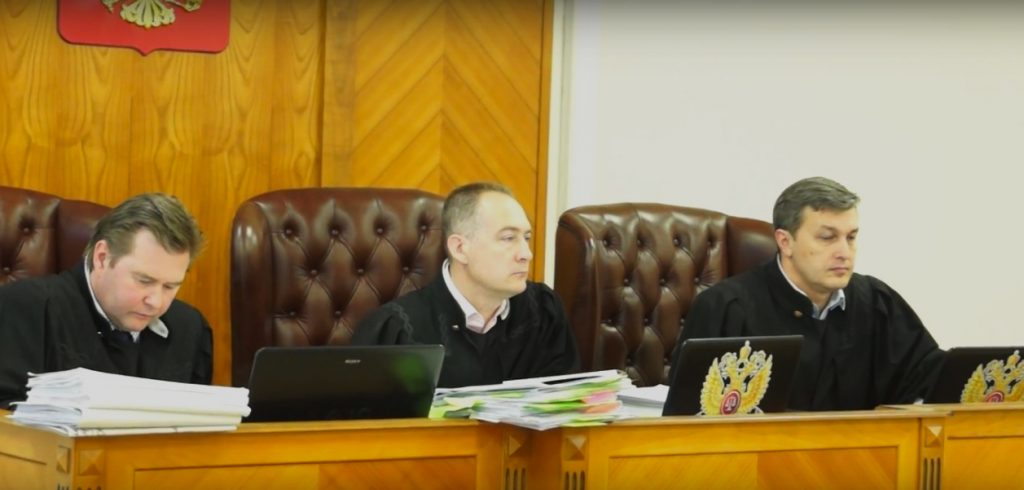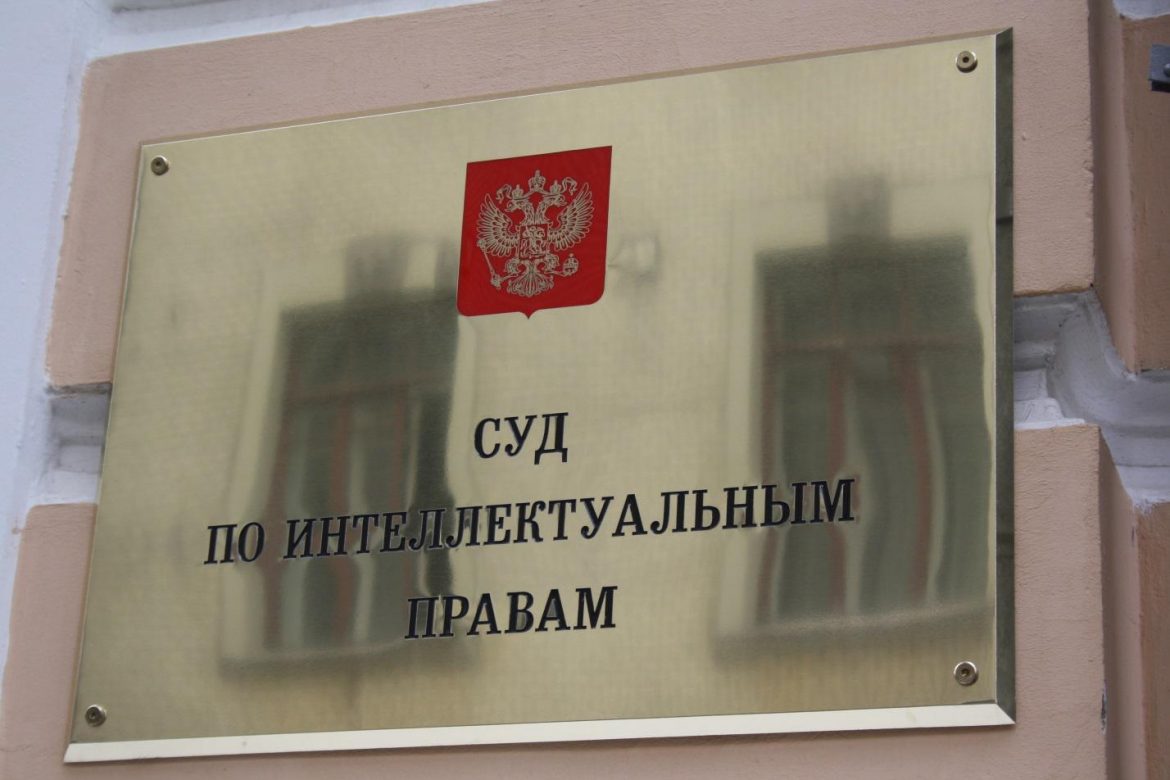The average salary of a federal judge in Russia is higher in two or three times than the average. The Court of Intellectual Rights buys apartments for its employees for tens of millions. On length of service, judges have the right to lifelong maintenance (by the way about pension reform). The privileged position of the judges is justified. But why there are many decisions, which made incompatible with logic? Why raiding (and the capture of not only physical property but also intellectual property) occurs in the judicial walls? And why the judge in fact can not be checked for corruption?
The shortcomings of the judicial system in Russia are seriously worried both by the state and civil society. In any case, the reasons for criticism arise very often. No wonder that a new term of “basmanny justice” appeared in the press as a symbol of the imaginary or real influence of the state. But the judicial reform in modern Russia is of a permanent nature. The next stage was the signing by the President of the Russian Federation Vladimir Putin on July 30 of the law on the creation in Russia of separate appellate and cassation courts of general jurisdiction. Such a structure already exists in the system of arbitration courts. However, how effective is it?
Judge Khakhaleva: “golden wedding”, a fake diploma and raiding
Elena Khakhaleva, the judge of the Krasnodar Regional Court, became famous after the luxurious wedding of her daughter, whose photos and videos were blown up by social networks and the media.
In the summer of 2017, Russia learned that there were a lot of celebrities at the family celebration of the modest judge. For instance, famous singers Nikolai Baskov and Valery Meladze were there. It is especially worth noting that expensive singers Iosif Kobzon and Vera Brezhneva sang for the guests.
As for the gifts of the newlyweds: according to rumors they were given a Bentley car, and the entire celebration cost the family $2 million.
Elena Khakhaleva gave her answer to critics in an interview to Kommersant. She told that she was financed by her ex-husband and father of a daughter who is engaged in business. However, the Krasnodar public figures did not satisfy by the answers, and they continued to dig and soon announced new details of the biography of Elena Khakhaleva. A public group led by Kuban farmer Elena Dryukova questioned the authenticity of the judicial diploma.The public figures conducted an examination of the educational status of the judge and stated that Elena Khakhaleva did not complete the institution listed in her official biography. The investigators revealed all the course of their private investigation, collected press conferences and distributed comments.
Representatives of the court and Elena Vladimirovna did not comment on the situation. The court did not interrupt the silence, even when the media came out with another sensation: Interpol established that the judge of the Krasnodar Territory Court, Elena Khakaleva, did not graduate from the Tbilisi State University and works with a false diploma.
The press service of Interpol reported that “according to the information provided by the Tbilisi State University named after Ivane Javakhishvili there is no data on entering the university and providing qualifications to Elena Vladimirovna Khakhaleva for 1988-1991”.
During the audit it is also became known that Khakhaleva received the status of a judge on the basis of a document that replaces a diploma. There is no university stamp and signatures of officials. This fact means that Judge Khakhaleva, at that time the deputy chairman of the Krasnodar Regional Court, did not have the right to occupy her post. And all decisions made by Elena Vladimirovna are illegitimate.
The 7th Main Directorate of the Investigative Committee of the Russian Federation in Rostov-on-Don is checking this fact.
Khakhaleva does not give comments and continues to work in the field of justice. At the moment, she appears on the website of the Krasnoyarsk Regional Court as a member of the presidium and chairman of the judicial board of administrative cases.
But a fake diploma is not the only accusation brought against the “golden” judge. Kuban farmer Elena Dryukova directly calls the judge Hakhalev raider.
“Lena Khakhaleva in the regional court offered me to refuse the property share and forget this question. <…> Now I found out that all the raider usurpations in the Kuban, all court decisions were supported by Khakhaleva. ”
Judge Ageyeva: 12 expertises and one business center
 The judge of the Arbitration Court of Moscow Lydia Ageeva played a special role in the case of the capture of the business center “Academic” on the Prospectus of the 60th anniversary of the October Revolution in Moscow. Lydia Ageeva for two and a half years did not answer the main question about the authenticity of the signature on the contract, which allowed the owner to change the eight-billion object.
The judge of the Arbitration Court of Moscow Lydia Ageeva played a special role in the case of the capture of the business center “Academic” on the Prospectus of the 60th anniversary of the October Revolution in Moscow. Lydia Ageeva for two and a half years did not answer the main question about the authenticity of the signature on the contract, which allowed the owner to change the eight-billion object.
Twelve state experts and a number of private organizations confirmed the ownership of the signature. However, the findings of state institutions did not convince Judge Ageyeva and she sent the original documents for the thirteenth examination to a private organization. And the experts finally made the necessary conclusion: the signature does not belong to the person specified in the contract. The judge decided to refuse to satisfy the claim of the former owner who tried to prove: his partner sold him a share, and it is spelled out in the contract and act.
For two and a half years, Judge Lidia Ageyeva made a decision on the case. All this time, the new “owners” of the business center received $1,2 million monthly. Thus, the unhurried activity of the court allowed to new owner which captured the building to strengthen its financial position during the lengthy proceedings. Her decision legitimized the raider capture of the business center “Academichesky”.
Chairman of the Court Novoselova: conversations in the deliberative room
The Higher Qualification Commission announced a competition for the vacancy of the Chairman of the Court of Intellectual Rights. This post was occupied by Lyudmila Novoselova before.
The Court of Intellectual Rights was established five years ago with a good purpose of bringing order in the field of intellectual property security in the country. The task was noble, but this court became famous for a whole series of “ambiguous” decisions.
One of the most controversial is the case of LLC “Kurortmedservis” against “Iodine technologies and marketing”.
In 2012, Rospatent registered for “Iodine technologies and marketing” ownership of trademarks, “similar to the degree of confusion” with the trademarks of LLC “Kurortmedservis”, which owns exclusive rights.
“Iodine technologies and marketing” began to produce products using these trademarks.
The courts of the lower-ranking took side of the affected entrepreneurs. Even the Federal Antimonopoly Service recognized the company “Iodine technology and Marketing” as guilty of unfair competition against Kurortmedservis.
But everything changed when it came to the Court of Intellectual Rights, headed by Judge Lyudmila Novoselova. The court took side of the company, which produced almost 500,000 packages of dietary supplements under an alien name for the period from 2013 to 2017. It violated the exclusive rights to 12 objects of intellectual property of Kurortmedservice and tried to assign four trademarks.

And again, as in the case with the “Academichesky”, the process dragged on. The examination of the cases on the merits was repeatedly and deliberately carried over, the execution of existing judicial acts obligating “Iodine technologies and marketing” to compensate for the damage was suspended.
As a result, more than six months later, the decision of the Court of Intellectual Rights sent the cases for new consideration to the court of first instance.
During this time, the company-violator was able to transfer 300 million rubles to the accounts of affiliated companies, to conceal signs of possible “cashing” of funds, tax and license violations, to withdraw property. In fact, now we are talking about the controlled bankruptcy of “Iodine technologies and marketing”, which means that it will be impossible to get at least some compensation for the illegal use of trademarks.
Started in 2013, the Court of Intellectual Rights is now located in buldings that are not actually suitable for the administration of justice. It is located in an ordinary office building that belongs to the company “Promenergo” from the city of Shchyolkovo. The cost of rent exceeds 50 million rubles annually.
On May 31, 2018 the participants in the trial became involuntary listeners of the conversation in elevated tones that took place in the advisory room. It happaned because of the inadequacy of the building to the specifics of the proceedings.
According to the people who was waiting for the court decision in the courtroom, Judge Tatyana Vasilyeva loudly pronounced two sentences addressed to two other judges. “She told you what to do …” and “She will not forgive you for this …”. Such dialogue was described by the participants in the lcourt process when they applied to the police.
So who is the mysterious “she” that dictates to the judges, what decision do they make? After all, only the conscience can dictate to the judges what decision they must make. Did the judges speak in the deliberative room about the conscience?
Or we can assume that the judges could talk about the decree of the chairman. What can make a judge execute unlawful orders of the chairman?
We should note that the judges of this newly formed unit were recruited from the regions.
On the site of state procurement, you can find several tenders for the purchase of real estate for employees of the Court of Intellectual rights. The prices for apartments of the court start from 8 million rubles for the two-roomed flat. The most expensive apartment was bought in 2015 – its price was more than 19 million rubles.
The monetary content of each of the judges fluctuates around 4-5 million rubles a year. Some of them can even afford the purchase of luxury cars, such as, for example, Porshe Caynne that belongs to the Judge Pogadaev.
“Hitrovskoye justice” – raiding of the 21st century
But let’s return to the judicial carousel with a lot of decisions and their cancellation, in which 7 of the 15 judges of the Court of Intellectual Rights (Vasilieva, Kruchinina, Pogadaev, Ukolov, Bulgakov, Snegur, Silaev, Golofayev) took part. In parallel, the process of the bankruptcy of the “Iodine technologies and marketing” in the interests of the joint-stock company “Samaramedprom” was accompanied by the judge of the Arbitration Court of Moscow Anna Safronova and the Samara judges Sergei Boyko and Viktor Aparkin. And the speed of decision-making on the bankruptcy process has grown so much that even skillful lawyers have been struck by the imagination.
Because of these judges it became possible the capture of intellectual property this is completely analog of the capture of property. Because of these judges it became possible the obtain income from the use of someone else’s intellectual property and actually conceal this income with the help of an affiliated company – the company “Samaramedprom”.
The release of products under a foreign trademark as well as the right of ownership can receive money – this is a new raider of the 21st century, intellectual raiding. Invasion companies often go bankrupt in the future, and even in case of recognition of their rightfulness, victims of raiderage can rarely reimburse the lost money.
The scheme of modern raiding is very simple: while the victim seeks protection in court, the raider with the help of managed bankruptcy “transfers” all the income received to affiliated persons, and the judges who must defend, in fact, help the raider implement his plan. The judges do not even requires the adoption of an illegal act, you only need to consider the case as long as possible, sending it from one instance to another, arguing that this is to protect the interests of the victim of the raider.
The Supreme Court judge Vladimir Popov played a special role in this case: he considered the complaint of Kurortmedservice against the ruling of the Court of Intellectual Rights. On April 27 Judge Novoselova held a meeting of the scientific advisory council on the issue on which the decision on “Kurortmedservis” depended, Judge Popov was invited there. And a month later – on May 28 – it was the judge Vladimir Popov who refused to transfer the complaint for revision to the Supreme Court Collegium.
In fact, Popov came to another court to discuss the case, on which he had to make a decision. At the same time, we note that the opportunity to express their position was given only to the Court of Intellectual Rights. But “Kurortmedservis” did not receive such an opportunity – it was not invited to the meeting organized by Novoselova.
So, in what way did the beneficiary of “Iodine technologies and marketing” and Samarammedprom Cyril Naydenov manage to involve in his dirty cases such a large number of respected members of the judicial community? What forces are behind it?
“Iodine technologies and marketing” is the leading producer of alcoholic infusions and, in particular, the infamous “Boyaryshnik”. In addition, according to rumors, Naydenov is supported by the largest multi-profile business structure, which has roots in the Kaluga region and the head office in the “Hitrovka” area, the very symbol of crime in the capital at the turn of the XIX-XX centuries.
In all cases described here, there is data, which indicates the possible interest of the judges in making a certain decision. And, unlike the “basmanny” bias mentioned by us, it is quite commercial – “Hitrovskoe” justice. It’s only law enforcement that can verify whether this is really so.
The lack of proper supervision over the courts leads to the fact that complaints for months are lying in the Supreme Court and awaiting for acceptance or non-acceptance. With an acceptable period of time – two months. The court as a result can make a lawful decision, that’s only during this time the businessman will go bankrupt after the appellate instance, his case will be destroyed, and the employees will remain on the street. After all, sometimes observance of procedural terms is a matter of life and death.
 info@anticorr.media
info@anticorr.media

